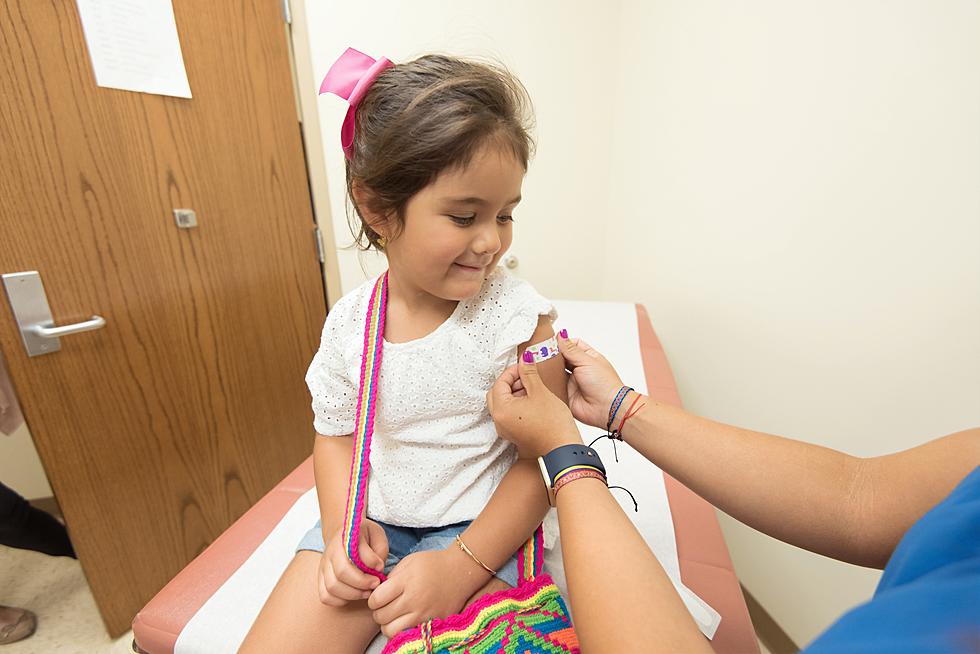We know some adults who get COVID develop long-term problems like brain fog and other ailments that can last for months, and sometimes even years.
Researchers are now learning the same thing is happening to some children who come down with the virus.
Rutgers University, working with the National Institutes of Health, is leading a national effort to study long- COVID symptoms in kids, and hopefully find ways to expand effective treatments.
Dr. Larry Kleinman, a professor and vice chairman of the Department of Pediatrics at the Rutgers Robert Wood Johnson Medical School and lead investigator for the Collaborative Long-term study of Outcomes of COVID-19 in Kids (CLOCK) consortium at Rutgers, said there is a lot we do not understand about the virus but what we do know is “children are not spared, that was an early myth of the pandemic, children get the disease, children spread the disease and children are impacted by the disease.”
What leads to long-COVID?
He noted some kids that get COVID and only have mild symptoms will go on to develop a range of long COVID symptoms just like adults, but at this point it’s unclear why this happens.
“We don’t yet have the data so we don’t know, but we’re working very hard to try and identify what’s going on, if there are factors regarding the children, we have a lot to learn,” he said.
Dr. Kleinman said when kids wind up with long-term COVID they can have a wide variety of symptoms including ‘fatigue, loss of concentration, loss of stamina, sometimes loss of an ability to even do mild or moderate exercise, there’s headaches.”
How often does this happen?
He said right now no one is sure, but some studies indicate a rate of about 10% of the time, while others report it may be as high as 40%.
He stressed the research now underway will hopefully determine whether any therapies or other steps can be taken to lessen or prevent long-COVID from developing.
Dr. Kleinman said most children who have symptoms experience mild ones and their lives are not disrupted.
“There are many who have small impacts, there are a few who have large impacts, but in the population it is impacting the lives of children and families,” he said.
He said also under investigation is why a small number of children with COVID sometimes develop Multisystem Inflammatory Syndrome, which can cause fever, inflammation of the gastrointestinal tract, circulatory system and skin.
He said Rutgers will help to collect and organize data from other research and medical facilities across the nation as the study moves forward.
“We don’t know yet of what the long term meaning of this is, and that’s one of the critical reasons we need to do systematic study and research,” he said
The benefits of studying the problem and understanding it better
He said as more data is collected on long-COVID in children “we can learn about it, we can tell people what to expect and we can work with our scientists to try to identify potential ways to make them better.”
CLOCK partners include the American Academy of Pediatrics and its PROS Research Network, the American Academy of Family Physicians and its National Research Network, along with its partner the DARTNet Institute, Family Voices – a national grassroots organization that advances partnerships with parents, and distinguished pediatric institutions such as Baylor College of Medicine/Texas Children’s Hospital, Bristol Myers Squibb Children’s Hospital, Central Michigan University, Children’s Hospital of Philadelphia, Children’s Mercy Hospital of Kansas City, Connecticut Children’s, Johns Hopkins University School of Medicine, Hackensack Meridian Children’s Health, MetroHealth System (Cleveland), New York Medical College/Maria Ferari Children’s Hospital, RWJ Barnabas Health, University of California, San Francisco and the Yale University School of Medicine.
Dr. Kleinman said if people have questions about long-COVID and the research that is underway they can email clockrecover1@rwjms.rutgers.edu.
You can contact reporter David Matthau at David.Matthau@townsquaremedia.com.
Answers to 25 common COVID-19 vaccine questions
The Blizzard of '96 Revisited: Snow totals for every NJ county
More From 92.7 WOBM











